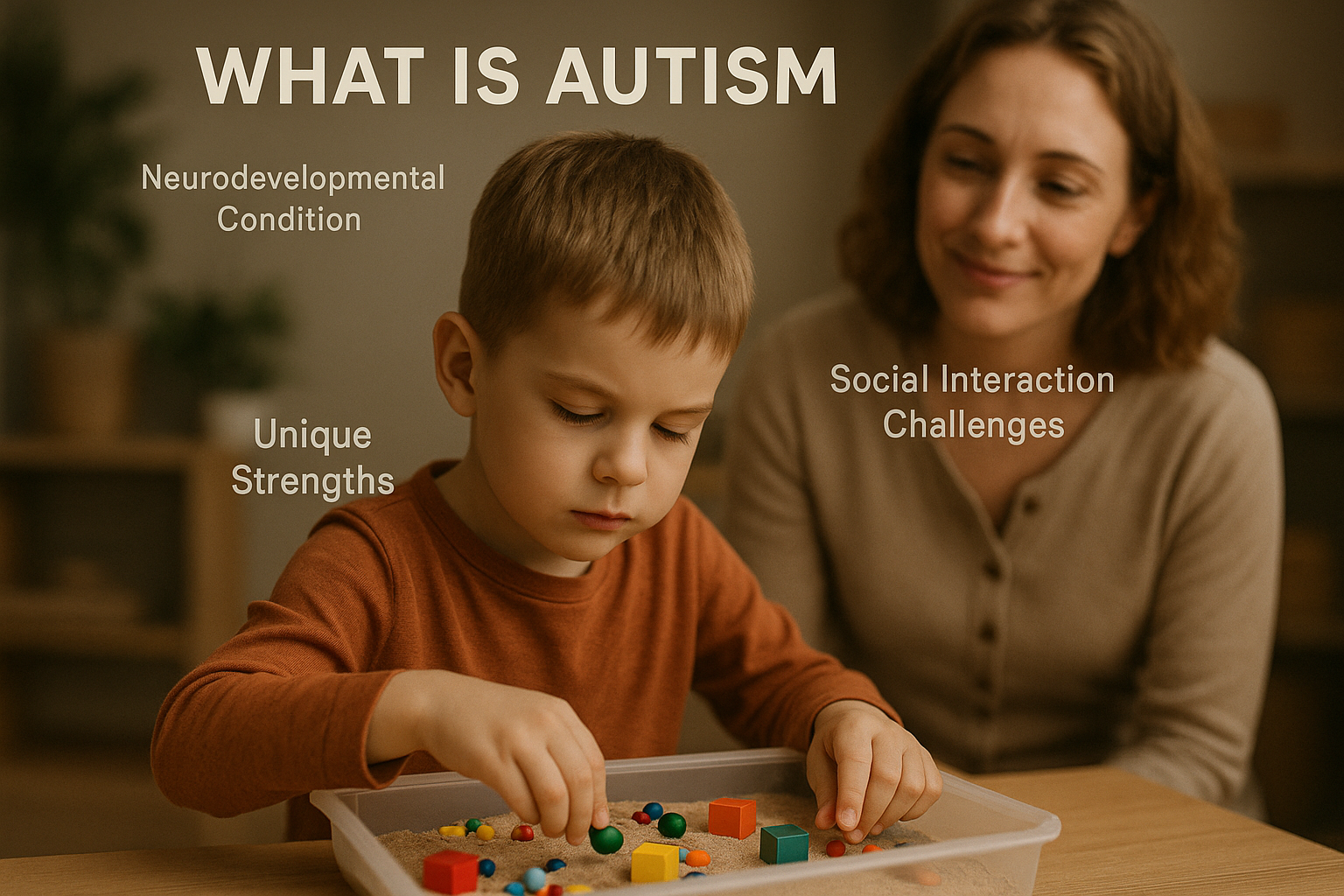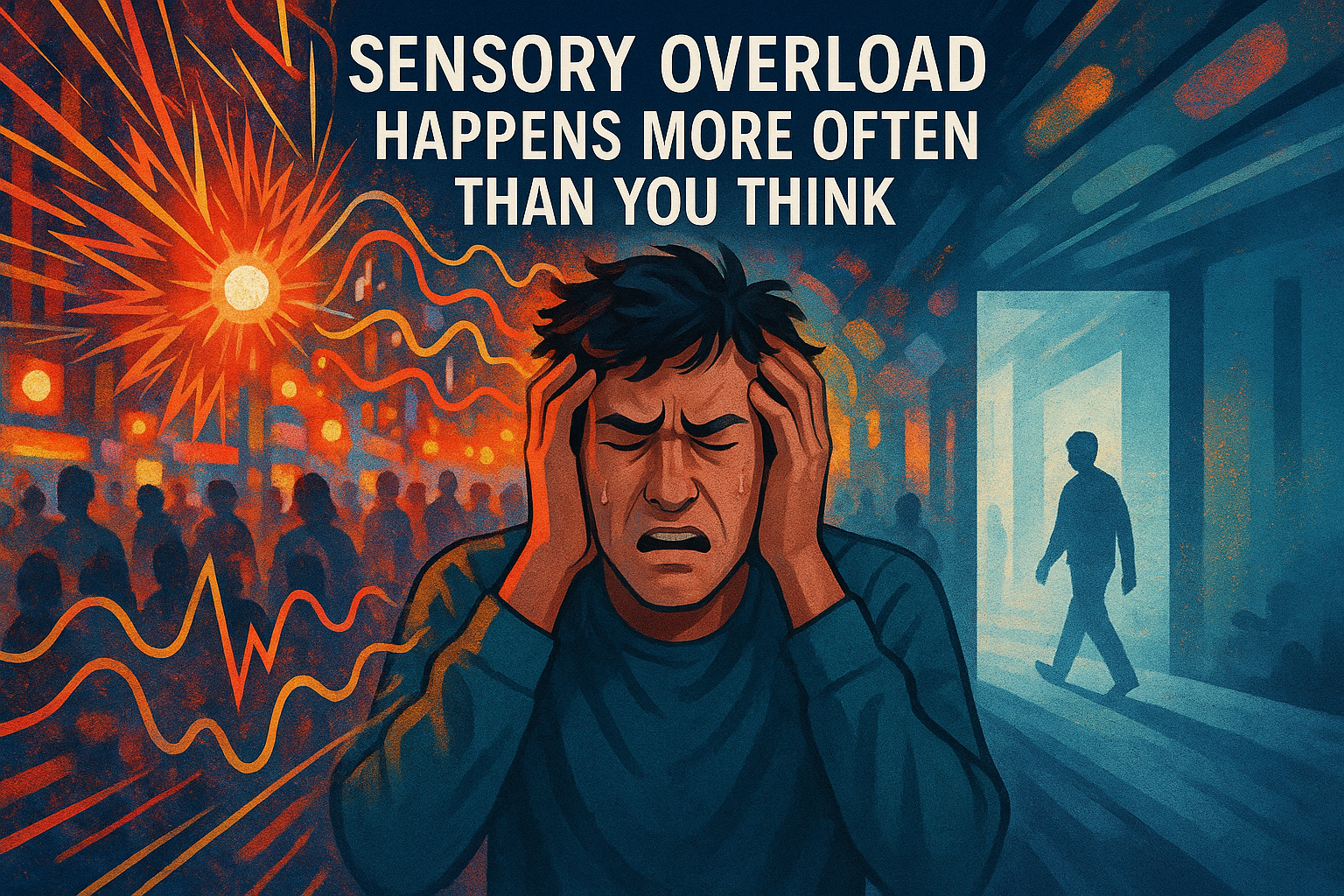How Autism Affects Daily Life
Table of Contents
Intro
How Autism Affects Daily Life
What Is Autism?
Communication Challenges in Everyday Conversations
Social Situations Can Be Exhausting
Routines and Predictability Are Not Just Preferences
Sensory Overload Happens More Often Than You Think
Executive Functioning: Why Some Tasks Feel Impossible
Emotional Regulation Is a Hidden Challenge
Work, School, and Family Life May Look Different
Want to Be Truly Supportive? This Book Will Help You Understand
Conclusion
How Autism Affects Daily Life
Living with autism means experiencing the world in ways that can be very different from what most people consider typical. For autistic individuals, daily activities that others might take for granted can require extra planning, energy, and coping strategies. Understanding how autism affects everyday life is crucial for families, friends, educators, and employers who want to create more supportive environments.
This isn't about viewing autism as a tragedy or something that makes life impossible. Many autistic people live fulfilling, successful lives and make valuable contributions to their communities. However, they often face unique challenges in navigating a world that wasn't designed with their needs in mind.
Every autistic person's experience is different because autism is a spectrum condition. Some people need significant daily support, while others live independently. Understanding this diversity is key to appreciating how autism can affect daily life in many different ways.
What Is Autism?
Autism is a developmental condition that affects how people interact with others, process information, and handle daily routines. It's important to understand that autism isn't an illness, disease, or something that needs to be cured. Instead, it's a different way of experiencing and responding to the world.
Autistic brains are wired differently from neurotypical brains. This different wiring affects how information is processed, how sensory input is experienced, and how social and emotional connections are formed. These differences can create both challenges and strengths.
The differences in brain wiring mean that things that feel natural and automatic for neurotypical people might require conscious effort and energy for autistic people. Social interactions that seem intuitive might need to be learned as specific skills. Sensory experiences that others can easily ignore might be overwhelming or distracting.
One of the most important things to understand about autism is that it's not a problem to be solved or fixed. Autistic people don't need to become neurotypical to have valuable, meaningful lives. What they often need is understanding, accommodation, and support that recognizes their differences rather than trying to eliminate them.
Communication Challenges in Everyday Conversations
One of the most significant ways autism affects daily life is through communication differences. These differences can impact everything from casual conversations to important discussions about work, school, or relationships.
Many autistic people find it challenging to interpret nonverbal communication like facial expressions, body language, and tone of voice. In typical conversations, a huge amount of information is communicated through these nonverbal cues, and missing this information can lead to misunderstandings.
Sarcasm, jokes, and indirect communication can be particularly challenging. When someone says "Nice job" sarcastically after a mistake, an autistic person might interpret it as genuine praise. This literal interpretation of language can create social misunderstandings.
Many autistic people need extra time to process what they've heard and formulate a response. In fast-paced conversations, they might still be thinking about an earlier comment when the conversation has moved on to a new topic. This processing delay doesn't indicate lack of intelligence or interest.
Small talk can be particularly challenging because it often seems pointless and follows unwritten social rules. Group conversations can be overwhelming because they require tracking multiple speakers, rapid topic changes, and complex social dynamics.
For families, friends, and coworkers, understanding these communication differences is key to better connection and more effective interaction.
Social Situations Can Be Exhausting
Social interactions, even positive ones, can be incredibly draining for many autistic people. This exhaustion isn't because they don't like people or don't want social connections. Instead, it comes from the tremendous effort required to navigate complex social situations.
Group settings can feel overwhelming because of multiple conversations happening simultaneously, rapid topic changes, and complex social dynamics. Social situations are governed by many unwritten rules that neurotypical people often learn intuitively, but autistic people often need to learn consciously and deliberately.
Many autistic people learn to "mask" or camouflage their natural responses in social situations. Masking might involve forcing eye contact when it's uncomfortable, suppressing stimming behaviors, copying facial expressions, or engaging in small talk even when it feels pointless.
While masking can help autistic people fit in socially, it's incredibly exhausting. Because social interactions require so much effort and energy, many autistic people experience social burnout and need significant recovery time after social events, even enjoyable ones.
This recovery time isn't about being antisocial or rude. It's about restoring the mental and emotional energy that was used during social interaction.
Routines and Predictability Are Not Just Preferences
For many autistic people, routines and predictability aren't simply preferences or habits. They're essential tools for managing anxiety, conserving mental energy, and functioning effectively in daily life.
Routines serve several important functions: reducing decision fatigue, managing anxiety, creating structure, and supporting executive functioning. When routines are disrupted or unexpected changes occur, the impact can be significant, including increased anxiety, difficulty functioning, and emotional dysregulation.
Changes that might seem minor to neurotypical people can be significantly disruptive for autistic individuals, such as a regular store being closed unexpectedly, a favorite food being unavailable, or plans being canceled at the last minute.
Even within established routines, transitions between activities can be challenging. Moving from one task to another requires stopping the current activity, mentally shifting to the new activity, and adjusting to new sensory or social demands.
Understanding that routines aren't rigid preferences but essential supports helps family members, educators, and employers provide appropriate accommodation and support.
Sensory Overload Happens More Often Than You Think
Sensory processing differences are a core feature of autism that significantly affect daily life. Many autistic people experience sensory input very differently from neurotypical people, and this can make everyday environments challenging or overwhelming.
Autistic people might be hypersensitive to certain sensory inputs, hyposensitive to others, or experience a combination of both. Common sensory challenges include:
Auditory sensitivity: Fluorescent light buzzing, background conversations, sudden loud noises, or multiple sounds happening simultaneously can be genuinely painful or overwhelming.
Visual sensitivity: Bright fluorescent lights, flickering lights, busy patterns, or too much visual information can cause discomfort.
Tactile sensitivity: Clothing seams, certain fabrics, unexpected touch, or specific textures can significantly affect comfort.
Olfactory and gustatory challenges: Strong smells or certain food textures might be overwhelming or unbearable.
Sensory challenges often build up throughout the day. Someone might handle fluorescent lights OR background noise OR scratchy clothing, but experiencing all three simultaneously can lead to overload.
When sensory input becomes overwhelming, autistic people might experience meltdowns or shutdowns. Meltdowns are external expressions of overwhelm, while shutdowns are internal responses where the person becomes withdrawn or nonverbal. Both are signs that the person has reached their limit and needs support, not punishment.
Executive Functioning: Why Some Tasks Feel Impossible
Executive functioning refers to mental skills that include working memory, cognitive flexibility, and planning. Many autistic people experience challenges with executive functioning that can make routine tasks feel overwhelming.
These challenges might include difficulty starting tasks, following multi-step instructions, organizing physical spaces, managing time, finishing projects, or switching between activities. What looks like procrastination might actually be difficulty with task initiation.
Executive functioning difficulties are often invisible to others, which can lead to misunderstandings. Someone might appear lazy or unmotivated when they're actually struggling with neurological differences in how their brain processes and organizes information.
Understanding executive functioning challenges leads to better support strategies like external organization systems, breaking tasks into smaller steps, visual supports, and clear expectations and structure.
Emotional Regulation Is a Hidden Challenge
Emotional regulation involves the ability to recognize, understand, and manage emotions effectively. Many autistic people experience emotions more intensely than neurotypical people and might have difficulty identifying specific emotions.
Emotions might change quickly and intensely, or emotional reactions might be delayed. Many autistic people learn to mask their emotional responses, which is exhausting and can lead to emotional buildup.
When emotions become too intense to manage, autistic people might experience meltdowns or shutdowns. These aren't tantrums but genuine expressions of emotional overwhelm that require patience and understanding.
Understanding emotional regulation challenges helps develop better coping strategies and emphasizes the importance of validation and support.
Work, School, and Family Life May Look Different
Autism affects how people function in major life areas. Traditional workplace environments often present challenges like sensory issues in open offices, social expectations, communication style differences, and difficulty with frequent changes.
School environments can be challenging due to sensory overload, social demands, executive functioning requirements, and communication differences. Family life might require more structure, sensory considerations, and adapted communication styles.
Rather than expecting autistic people to adapt entirely to existing systems, the most effective approaches modify environments and expectations to work better for autistic individuals while still meeting necessary goals.
Want to Be Truly Supportive? This Book Will Help You Understand
If there's someone in your life who's autistic, understanding their experience from the inside is crucial for providing meaningful support. Sonia Krishna Chand's book "Dropped in a Maze" is a must-read for anyone who wants to truly understand the autistic experience.
This isn't just another book about autism written from an outside perspective. It's an invitation into the real, raw, and deeply human experience of being autistic in a world that often doesn't understand neurological differences.
Personal stories like Sonia's provide insights that clinical descriptions cannot: the internal experience, the emotional journey, the daily reality, and the strength and resilience of autistic people. Her story combines personal experience with professional insight as both an autistic person and a licensed therapist.
This book offers value for parents, educators, partners, friends, professionals, and autistic people themselves. It challenges assumptions and stereotypes while building genuine empathy and understanding.
This is the kind of book every parent, teacher, and friend of an autistic person should have on their shelf. Understanding autism from the inside out is the foundation for providing truly helpful support rather than well-intentioned but misguided assistance.
Get a copy of "Dropped in a Maze" on Amazon today.
Conclusion
Autistic people face real challenges in their daily lives, from communication that requires constant translation to sensory environments that can be overwhelming. These challenges are real and deserve recognition, accommodation, and support.
Often, relatively small adjustments can make enormous differences: providing advance notice of changes, creating sensory-friendly environments, using clear communication, allowing processing time, and recognizing individual strengths.
Some of the most powerful support comes from genuine empathy and willingness to have honest conversations about autism. While it's important to acknowledge challenges, it's equally important to recognize the strengths autistic people bring: attention to detail, deep expertise, honest communication, creative problem-solving, and unique perspectives.



